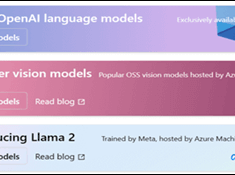The DevOps market is set to grow by 25% annually between 2024 and 2032, fueled by the growing demand for faster software delivery and higher-quality output. Emerging technologies like AI-driven development and serverless architectures have introduced new products in the space, while traditional processes like version control and CI/CD will be further refined. But amongst this innovation, security and quality should remain as organizations’ highest concerns. Looking into the coming year, it’s hard not to see where the DevOps industry is going based on the past year. As such, we have endeavored to provide six distinct DevOps trends we think will be particularly influential in the new year.
The Integration of AI and Machine Learning
One of the most notable trends in the future of DevOps is the increasing incorporation of artificial intelligence (AI) and machine learning (ML) into the software development life cycle. The explosion of AI technology in 2023 has set the stage for more predictive analytics in code development, automated testing and intelligent monitoring in the operations phase.
As Google’s 2023 State of DevOps Report highlighted, DevOps teams feel that AI will contribute most to analyzing data and security, alongside identifying bugs. However, a solid use case has yet to materialize for most teams, and the report shows that early adopters of AI have experienced a minor decrease in their software delivery performance and a significant decrease in their operational performance. So, it’s possible that at this stage teams are implementing AI without considering what problems they’re trying to solve, or without paying full attention to the security and quality implications.
Emphasis on Increased Productivity
While AI adoption will be driven by the underlying push for increased productivity in DevOps tools and practices, DevOps teams should focus on drawing maximum value from the existing tools that automate mundane and repetitive tasks, allowing them to focus on more critical aspects of development and operations. This will be made possible by DevOps vendors that provide enhancements to collaborative tools, simplified interfaces and more intuitive workflows, reducing the cognitive load on developers and operations professionals.
Culturally, the continuing trend towards remote and hybrid work environments is influencing productivity strategies in DevOps, with tools and practices that support remote collaboration and communication becoming vital. Cloud-based DevOps tools are facilitating seamless collaboration, allowing teams to work efficiently irrespective of their physical locations.
Alignment to Existing Cloud and Microservices Architecture
We can expect the new alignment of DevOps with cloud and microservices architectures to continue into 2024. This integration is about more than just adopting new technologies — it’s about creating efficiencies that enhance agility and revenue growth.
The combination of DevOps practices with cloud and microservices enables organizations to leverage the inherent benefits of these platforms. Cloud infrastructure is scalable and flexible, reducing overhead costs associated with physical servers. Microservices allow for rapid development, testing and deployment of independent components without disrupting the whole system. Together with DevOps automation and continuous practices, these architectures accelerate innovation and time-to-market.
This alignment of DevOps with cloud and microservices will lead to enhanced scalability, resilience, collaboration and customer experiences. By being able to quickly scale, update, and respond to demands, organizations can better satisfy customers and meet market needs, and this, in turn, will drive revenue growth and productivity.
The Drive for Higher Quality
While increased productivity and revenue generation will be a key priority in 2024, it’ll be matched by an unwavering commitment to quality. With the rising complexity of software and the increasing dependency of businesses on digital platforms, the margin for error is slimming. Quality assurance practices will become more integrated into the DevOps workflow, ensuring that each release meets the highest standards of performance, security, and user experience.
Continuous integration/continuous deployment (CI/CD) practices are evolving to include more rigorous and automated testing protocols. These protocols are designed not just to catch bugs but to assess performance under diverse and real-world scenarios. Real-time monitoring tools are being integrated more deeply into DevOps workflows, providing ongoing insights into application performance and user experience. This continuous feedback loop ensures that any issues are identified and addressed promptly, thereby maintaining high standards of quality post-deployment.
DevSecOps Maturity
In the same vein, cybersecurity will continue to be a primary concern in 2024, with core DevOps tooling and processes stepping up by incorporating advanced security features. Version control systems will take the lead here by introducing robust access controls, encryption of code repositories and integration with security testing tools to ensure that the code is not only efficient but also secure from vulnerabilities.
Security integrations in version control will become more advanced, possibly incorporating real-time scanning for security vulnerabilities, tighter integrations with identity management platforms and pattern analysis to predict and prevent potential security breaches in code.
And as AI is pioneered throughout DevOps tooling, organizations will need to consider the security implications. The Open Worldwide Application Security Project (OWASP) has predicted that data leaks, permission issues and insecure plugins could pose serious security vulnerabilities for software. Teams that can harness growth with AI in 2024 while building sufficient security through DevSecOps practices like backup and monitoring will future-proof themselves.
Speed and Security
The speed of DevOps growth, innovation and adoption is only set to increase in 2024. We’ll see teams pioneer new technologies to meet business priorities and revenue targets. In doing so, it’s very easy to jump on the AI or serverless bandwagon and assume that sprinkling it on every technical discipline will make for a bright and shiny future. While some key opportunities in the DevOps space will benefit from the acceleration and tighter integration that new technology brings, organizations looking for lasting growth will need to prioritize quality and security practices.
The key trend we’ll see in 2024 is teams getting smarter and more focused on how they apply new technology to their DevOps trajectory, delivering faster, more accurate releases that free up time to deliver ever greater value to their customers and business. So, the DevOps winners of 2024 will be the organizations that manage to balance the speed of new technology adoption with robust security.


